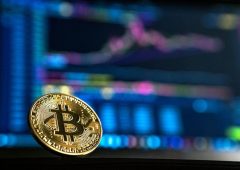Terraform Labs Co-Founder Do Kwon Pleads Not Guilty in U.S. Court After Extradition
03.01.2025 10:00 1 min. read Kosta Gushterov
Do Kwon, co-founder of Terraform Labs, appeared in a U.S. federal court on January 2, 2025, marking his first legal proceeding since being extradited from Montenegro.
Facing multiple charges tied to the collapse of the Terra blockchain, Kwon pleaded not guilty and will remain in custody without bail.
The charges against Kwon include securities fraud, wire fraud, money laundering, and commodities fraud—stemming from his alleged role in one of the most significant failures in the crypto space. A follow-up hearing is set for January 8, during which legal teams will exchange evidence and prepare motions ahead of the trial.
Kwon’s extradition to the U.S. follows months of deliberation in Montenegro, where authorities weighed competing requests from the U.S. and South Korea. On December 27, 2024, Montenegrin Justice Minister Bojan Božović approved the transfer, citing the severity of the charges and jurisdictional considerations. The Ministry of Justice highlighted factors such as the seriousness of the crimes and the possibility of further legal proceedings in other countries.
Kwon’s legal troubles have spanned years, including a landmark settlement in 2024 when Terraform Labs agreed to pay $4.47 billion to the U.S. Securities and Exchange Commission (SEC), including $204 million in penalties directly tied to Kwon. Despite the settlement, his role in the Terra ecosystem’s collapse continues to draw significant scrutiny as he faces trial in the U.S.
-
1
North Korean Agent Exposed in Crypto Job Scam at Kraken
04.05.2025 20:00 2 min. read -
2
ZachXBT Helps Freeze $7M After $330M Bitcoin Theft From Elderly Holder
05.05.2025 16:00 1 min. read -
3
$330M Bitcoin Heist Traced to Social Engineering Scam Targeting U.S. Senior
04.05.2025 12:00 2 min. read -
4
Samourai Wallet Case Faces Scrutiny After Allegations of Withheld Evidence
07.05.2025 13:00 2 min. read -
5
Alex Mashinsky Seeks One-Year Sentence as DOJ Pushes for 20 Years
08.05.2025 12:00 1 min. read
Man Sentenced to 30 Years for Using Crypto to Fund ISIS Operations
A U.S. court has handed down a 30-year prison sentence to Mohammed Azharuddin Chhipa, who was found guilty of financing terrorism through cryptocurrency.
Celsius CEO Sentenced to 12 Years Over $5 Billion Crypto Scandal
A major chapter in crypto’s legal reckoning closed this week as Alex Mashinsky, once a prominent name in digital lending, received a 12-year prison sentence.
Alex Mashinsky Seeks One-Year Sentence as DOJ Pushes for 20 Years
Former Celsius CEO Alex Mashinsky is asking for a significantly reduced prison sentence ahead of his May 8 sentencing, with his legal team pushing back hard against the U.S. Department of Justice’s call for a 20-year term.
Samourai Wallet Case Faces Scrutiny After Allegations of Withheld Evidence
The legal battle against the creators of Samourai Wallet has taken a sharp turn, as defense attorneys accuse federal prosecutors of suppressing a key legal interpretation from the Treasury Department that could dismantle the core of the government’s case.
-
1
North Korean Agent Exposed in Crypto Job Scam at Kraken
04.05.2025 20:00 2 min. read -
2
ZachXBT Helps Freeze $7M After $330M Bitcoin Theft From Elderly Holder
05.05.2025 16:00 1 min. read -
3
$330M Bitcoin Heist Traced to Social Engineering Scam Targeting U.S. Senior
04.05.2025 12:00 2 min. read -
4
Samourai Wallet Case Faces Scrutiny After Allegations of Withheld Evidence
07.05.2025 13:00 2 min. read -
5
Alex Mashinsky Seeks One-Year Sentence as DOJ Pushes for 20 Years
08.05.2025 12:00 1 min. read

